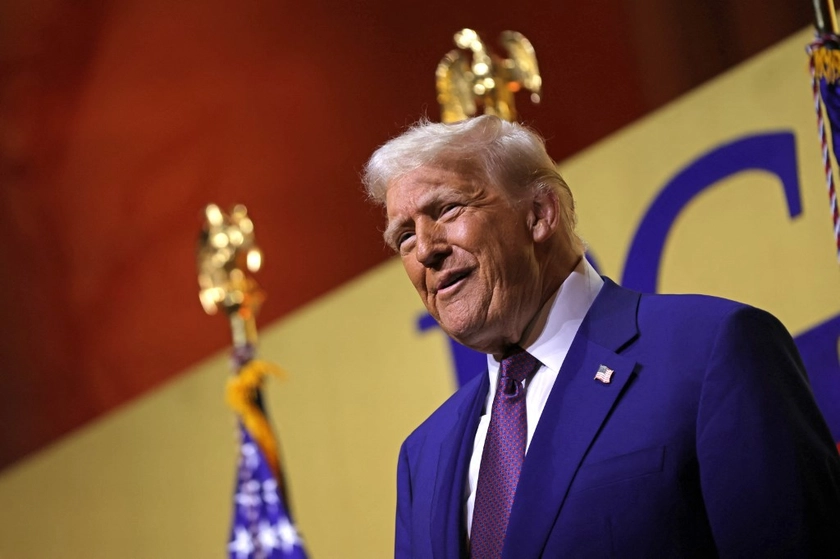The Europeans have agreed on a new “triumvirate” to lead the EU over the next four years: Ursula von der Leyen as head of the EU “government,” former Portuguese Prime Minister Antonio Costa as head of the European Council, and Kaja Kallas, Estonia’s prime minister, as head of European diplomacy.
With this distribution, the EU nations have outlined their favorites for the next election cycle in four years’ time, particularly for the leadership of NATO. Last November, TheNew York Times pointed to Kallas as a talented and serious candidate for the new NATO chief. Around the same time, I argued in favor of the same solution here and in other European media.
JOIN US ON TELEGRAM
Follow our coverage of the war on the @Kyivpost_official.
The reasons for this were twofold. Firstly, after 20 (or 25) years of NATO membership, the time has come for one of Eastern Europe’s leaders to take over the Alliance’s leadership. Secondly, Kallas is not only the embodiment of this principle but a personal example that should symbolizeNATO in the years when it faces the greatest threat since its establishment 75 years ago.
She will not be at the head of NATO this year, but in four years’ time it’s an almost certainty. The high intermediate stage she will occupy in the coming days as head of the European foreign policy service will aid her in this endeavor.
Strong diplomacy and determination
But let us focus not on the distant future of four years, but on the one that is just around the corner. Kallas as head of EU diplomacy, is a major, perhaps even historic, moment for the EU, as well as for all those who aspire to it.

Lithuania Calls for $10B for Ukraine’s Defense Industry
After a series of serving technocrats, one of the Union’s leading figures, a full-blooded European with full political vigor, is taking on the role of head of EU diplomacy but also a person who possesses the power to return the EU to what makes it the best in the world – strong diplomacy.
Over the past two and a half years, Kallas has emerged as by far the most determined European leader to uncompromisingly support Ukraine in its defense against Russian aggression. Her commitment to date will remain one of the bright spots in Europe’s overall attitude towards Ukraine, which has often been confusing, inconsistent, and lacking in resolve.
Many European governments sympathized with the thousands of young Russians who rushed to the borders in the first year of the war to flee the threat of mobilization. However, Kallas, without emotion, advised them not to seek shelter in Estonia but to remain in Russia and initiate anti-war activities instead of escaping.
Her role regarding other European heads of state and government has always been instructive, as she constantly enlightens them about the true nature of the Kremlin’s policies. Moreover, she has personally experienced these along with her family and all 1.4 million Estonian compatriots. Even before the Russian attack on Ukraine, she warned Russia, but even more so her European partners, that Moscow must not influence NATO decisions.
“Russia created the problem and is now heroically offering itself as someone who has a solution,” she warned a month before Russia’s invasion of Ukraine. Since then, she has reminded us of the negotiating strategy of former Soviet Foreign Minister Andrei Gromyko – nicknamed “Mr. Nyet” – with Moscow consistently demanding more than it expects to obtain, and the West consistently complying in fear of a harsh response.
Many Europeans could have easily fallen into the old trap and negotiated with Moscow in accordance with Gromyko’s formula, but they refused precisely because of the pressure Kallas put on them.
Loyal ally
The Estonian prime minister will bring to her new office more than just a resolute policy against Russian President VladmirPutin, which she and her government have led so far. She will also bring a strong family background, as she is the daughter of Siim Kallas, former Estonian prime minister and EU commissioner, who was even a member of the Supreme Soviet on the eve of the USSR’s collapse in 1991.
With all these qualities that characterize her political profile,Kallas comes to Brussels as the embodiment of the shared Baltic and Eastern European historical memory of the danger of the Russian threat; and at the same time, of the enormous,shared determination to counter this danger with full strength.
Ukraine will continue to have a loyal ally in Kallas, but this time in a far more influential European position. She will never repeat the hesitation and concern of her predecessor Josep Borrell, who said at the time of the Wagner Group rebellion that “a weakened Putin is a great danger” or that Putin is “not bluffing” when he said he would use nuclear weapons.
With Kallas as the head of diplomacy, the EU will have a leading expert on Russia and Putin who knows how to “read”all their tricks aimed at instilling fear and confusion in the West. For years, the EU’s weakest point has been its defenseagainst this fear, and Putin has invested heavily in making this rift as deep as possible.
Kallas’ arrival in Brussels shows the bravery of the EU’s decision to entrust her with a crucial task, even though it has come a bit late. However, the Estonian prime minister will also bring her determination to Brussels, as she has a fantastic opportunity to transfer it into the EU’s foreign policy over the next four years while it faces the biggest existential risk since its establishment.
The views expressed are the author’s and not necessarily of Kyiv Post.
You can also highlight the text and press Ctrl + Enter











